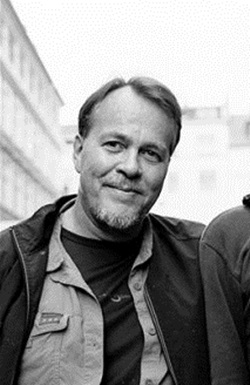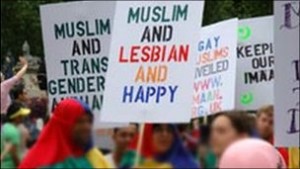Icelandic Muslims have experienced growing prejudice after attack on the editorial office of Charlie Hebdo in Paris last month and the Copenhagen shootings this month. The chair of the Association of Muslims in Iceland says he’s getting tired of generalisations made about Muslims, such as that all Muslims are homophobic, which he claims to be absolutely false. In fact, if asked, he would assist gay muslim couples to marry.
“That all Muslims hate gay people is absolutely absurd. It is quite obvious that those stating that are themselves homophobic and in fact against Muslims and gay people alike,” says Ibrahim Sverrir Agnarsson, the chair of the Association of Muslims in Iceland.

Prejudice against Icelandic Muslims surfaced in Reykjavik municipality elections in the spring of 2014 and recently again in the wake of the attack on Charlie Hebdo last month and the Copenhagen shootings earlier this month. According to Ibrahim Sverrir many things have been used to justify prejudice against Muslims for the past weeks and one is that Muslims are generally against gay people. “This is not true. The truth is that everyone is welcome to join the Association of Muslims in Iceland, regardless of their sexual orientation,” he says, adding that general attitude towards gay people amongst Muslims is changing rapidly.
The elections last spring showed us that in Iceland, being a homophobic politician works against you where as being against Muslims can work for you. “But it is probably difficult to find someone against Muslims who is not also homophobic,” says Ibrahim Sverrir. He also points to the fact that gay Muslims have in some countries formed organizations to fight for their rights. “There are gay Muslim organizations and I know of imams that marry gay people in the US and in France.”
But would he conduct a same-sex marriages? “I would register gay couples as married in the national register if I was asked to do so. However, we must remember that a Muslim marriage isn’t the same as a Christian marriage, it isn’t a holy ceremonial bond between two persons but a contract between two individuals stating that they live together, share their lives and you don’t need an Imam or a Mosque to do that. There is no special religious ceremony connected to a Muslim marriage. There is a contract and four witnesses have to sign it and that is all. Most couples do visit an Imam to get his blessings and then there is a party, a feast sometimes for days and these ceremonies vary in the different cultures. If two gay Muslims were to ask me to marry them I would have to follow Icelandic law and help them, probably by assisting them to obtain a civil marriage. I see no difficulties in that.”
However Ibrahim Sverrir admits homophobic people frequently try to interpret religious texts, such as the Koran to justify their views. For example some conservative clergymen are quoting Ibn Tamyya, a 13th century Islamic scholar and a philosopher, often called Sheikh ul-Islam, who stated that homosexuality is a sin but not punishable by law.
“But it is really a misunderstanding that homosexuality is damned by the Koran, where as the Koran does not speak of homosexuality. Interestingly the Koran does not mention any strict sexual rules. The only reference it makes to homosexuality is in the sections on Sodom and Gomorrah and even then it is not condemned. According to the Koran, the people of Sodom and Gomorrah were punished because they did everything excessively, they took self-indulgent to the extreme, sex with men and women was among those extremes but so was drinking and eating.”
Ibrahim Sverrir adds that throughout history the Islamic world and the western world have been affecting each other. “Evidence affirms that there was tolerance for homosexuality in the Islamic world but it almost disappeared in the early nineteenth century because of European, mainly French influences. The Ottoman Empire went through some governmental and social changes which meant that same-sex relationships were not accepted any more.”
“There was tolerance for homosexuality in the Islamic world but it almost disappeared in the early nineteenth century because of European, mainly French influences.”

That being said, Ibrahim Sverrir says he always frustrated when people think that Muslims can’t have different opinions on religion. “Islam is an elaborate religion and there is no one true or right interpretation of Islam. Many of us Muslims in Iceland are good friends and brothers but why should that mean that we agree on everything. Even though I am the chair of the Association of Muslims in Iceland I can’t speak the opinion of the Association as “it” has no opinion, its members do. I speak on behalf of myself, not for others. The Association of Muslims in Iceland is not a sect with normalized opinion, it operates a Mosque in Reykjavik for all Muslims, whatever personal opinions they have.”
Below a video from The Muslim Alliance for Sexual and Gender Diversity (MASGD) which works to support, empower and connect LGBTQ Muslims.


